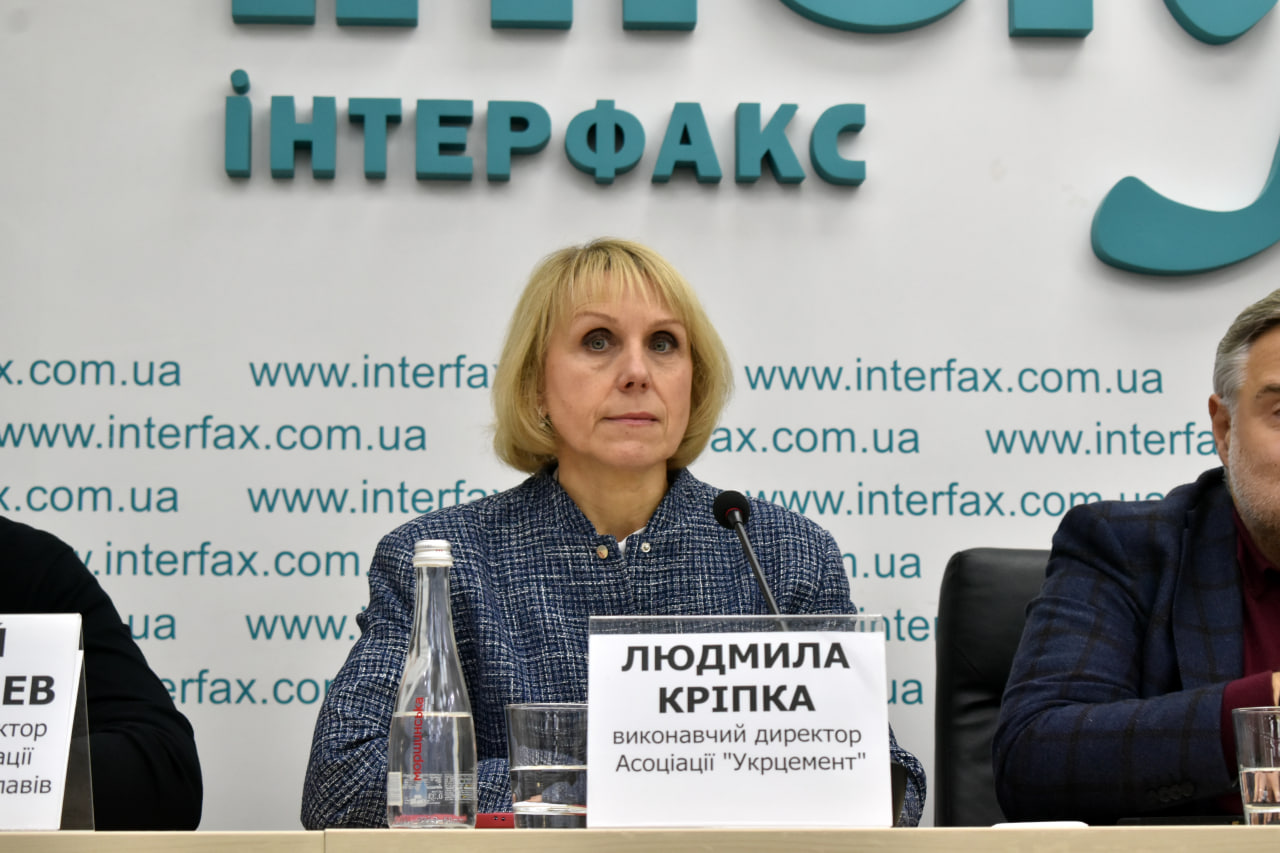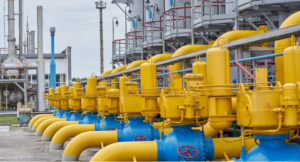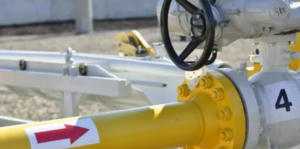
The US will impose tariffs on chip imports from China in connection with Beijing’s “unreasonable” attempts to secure dominance in the semiconductor industry, the administration of US President Donald Trump has announced. The size of the tariffs will be announced at least 30 days before their introduction, which has been postponed until June 2027.
“China’s focus on dominating the semiconductor industry is unreasonable and burdens or restricts US trade, and therefore warrants action,” said US Trade Representative Jamison Greer in a statement.
The US authorities have been investigating Chinese chip imports for unfair trade practices throughout the year and have concluded that China has been engaging in such practices.
Beijing could use its control over the global semiconductor industry to exert economic pressure on other countries, the trade representative’s release said.
In response, the Chinese Foreign Ministry criticized the US for abusing tariffs and suppressing sectors of the Chinese economy.
Ministry spokesman Lin Jian said that the American approach harms not only global supply chains, but also Americans themselves.
“If the US continues to do things its own way, China will resolutely take appropriate measures to protect its legitimate rights and interests,” the Financial Times quoted him as saying.

Kyivstar, Ukraine’s largest mobile operator, will gradually update certain tariffs from December 18 this year and throughout early 2026 to compensate for the rising cost of key resources.
“Starting December 18, 2025, and throughout early 2026, the terms of some subscription rates will be gradually updated, and starting January 1, 2026, and over the course of several months, some contract and business rates will also be updated,” the company said.
It is noted that these conditions are being introduced due to the rise in the cost of key resources, in particular, electricity for businesses, which has risen by 60% during evening peak hours.
The technical community of the telecommunications market “Mobile Communications of Ukraine” reported on Telegram that the new tariffs will affect, among other things, the LOVE UA line. Specifically, LOVE UA Base will increase from 150 UAH to 200 UAH/4 weeks, LOVE UA Bezlim 2024 from 225 UAH to 300 UAH, LOVE UA Pesnya 2024 from 250 UAH to 300 UAH, LOVE UA Svet 2024 from 200 UAH to 260 UAH, LOVE UA Light 2024 (with the superpower Economy) will increase from 150 UAH to 200 UAH, and the LOVE UA Freedom 2024 tariff will increase from 125 UAH to 190 UAH.
Among other changes, the operator announced the expansion of the “Roaming as at home” service from 28 to 32 countries, including Iceland, Norway, Liechtenstein, and Cyprus, starting December 18.
For subscribers abroad, roaming limits of UAH 2,000 and UAH 4,000 will be introduced from January 1, which will help avoid unexpected Internet costs.
As reported, Kyivstar received EBITDA of UAH 7.1 billion in the third quarter of 2025, which is 21.5% more than in the third quarter of 2024, and in dollars, the growth was 20.4% to $171 million.
Kyivstar served 22.5 million mobile subscribers in the third quarter of 2025, which is 3.6% less than a year earlier, but the number of 4G customers grew by 2.4% to 15 million.

Associations of mining and metallurgical, other industrial and extractive enterprises, manufacturers of building materials and cement have spoken out against increases in freight and electricity tariffs due to the risk of enterprises shutting down or a significant drop in production.
They made this statement at a press conference at the Interfax-Ukraine agency on Tuesday on the topic of “The tariff policy of state monopolies – JSC Ukrzaliznytsia and NEC Ukrenergo, their negative impact on industry and the economy of Ukraine.”
Alexander Kalenkov, president of the Ukrmetallurgprom association of enterprises, noted that the consumers of the services of so-called natural monopolies are mining and metallurgical companies, cement producers, building materials manufacturers, and the like.
“These are the main customers of companies such as Ukrzaliznytsia and Ukrenergo. Before the war, the mining and metallurgical complex, together with ferroalloy plants, consumed about 60% of all electricity supplied to industry and transported more than 40% of the traffic provided by Ukrzaliznytsia. Therefore, we are dependent on the activities of these companies, just as they are dependent on us,” Kalenkov stated, expressing hope that in the future these markets will become more competitive and monopolies will be broken up. But until then, the state must ensure that these monopolies do not abuse their position, he believes.

The head of Ukrmetallurgprom emphasized that Ukraine has the highest electricity tariffs in Europe. “In practice, this means that we are losing the competitive struggle to all entrepreneurs from the EU. I am not even talking about companies located in countries that still consume Russian energy resources—there, prices are several times lower than ours, both for gas and electricity. And that is why we are losing our traditional markets,” Kalenkov stressed.
As for railway tariffs, he said that they are currently cheaper in Poland and Slovenia than in Ukraine. “We already transport cargo by Ukrzaliznytsia at a cost that is 15-20% higher than in Europe, and there are plans to increase tariffs by another 37%. This is not only economically unreasonable and unjustified, it is a dead end,” Kalenkov said.
In his opinion, the tariff policy of Ukrzaliznytsia and Ukrenergo requires attention at the level of the Cabinet of Ministers and the Verkhovna Rada. Ideally, an independent body on transport tariffs, similar to the National Energy and Utilities Regulatory Commission, should be created. To subsidize passenger transportation, UAH 26 billion should be allocated in the budget for 2026 so as not to increase freight tariffs. Otherwise, due to the increase in tariffs, our enterprises will begin to reduce production or exit the market.
Executive Director of the Ukrainian Cement Manufacturers Association (Ukrcement) Lyudmila Kripka emphasized that two-thirds of the cement produced in Ukraine, as well as the raw materials for it, are delivered by rail. Therefore, the industry is very sensitive to unjustified increases in freight tariffs.
“We have already gone down this road, such actions have already had negative consequences in the past, and this time there will be no miracles either. This will lead to negative consequences. Manufacturers will be forced to pass on the increase in tariffs to their products, that is, to the end consumer. This will reduce consumption of products and, consequently, reduce their production and transportation,” Kripka stressed.
At the same time, she pointed out the need to develop state support instruments for energy-intensive export-oriented industries as a temporary anti-crisis measure. According to her, technical and economic criteria should be introduced specifically for enterprises in priority industries. At the same time, the funds saved from the reduction in tariffs for electricity transmission and dispatching could be directed towards investment in our own renewable energy sources.

“In this way, we would fulfill the decarbonization targets set for us by the European Union,” Kripka stated.
She cited data from the state-owned company Ukrpromvneshexpertiza, according to which a 30% increase in freight tariffs would lead to a reduction in GDP of almost UAH 100 billion, a loss of foreign exchange earnings of UAH 98 billion, annual budget losses of more than UAH 36 billion, and the elimination of at least 76,000 jobs.
Sergey Kudryavtsev, executive director of the Ukrainian Association of Ferroalloy Producers (UkrFA), noted that the majority of ferroalloy enterprises are located along the shore of the Kakhovka Reservoir, i.e., in an area close to the combat zone, where working conditions are extremely difficult. In particular, manganese plants have been idle for two years.
“We cannot transport raw materials to ferroalloy plants because the railway lines have been destroyed. And we cannot pay to transport the raw materials needed for ferroalloy production by detours. Ferroalloy plants are currently operating at 15-20% of their capacity. This situation will lead to the end of ferroalloy production in Ukraine. Imported alloys will be brought to us, and the workers will be left without jobs,” Kudryavtsev said.
According to him, this frontline zone is currently being held together thanks to the Nikopol Ferroalloy Plant (NFP), Nikopol pipe and metallurgical enterprises, but it could become “gray” if people leave.
“Today, we have problems with production, logistics, staff shortages, and electricity. This is a region that used to produce electricity, but today we get it from western Ukraine. The tariff is unaffordable for us. Therefore, we are in a situation where we may have to shut down, and it will not be possible to recover. Enterprises are currently operating at 15% capacity, maintaining a continuous process. Because if you stop a ferroalloy furnace, it will take six months to start it up again,” added the executive director of UkrFA.
Source: https://www.youtube.com/live/ATmga3Sdn3g
ELECTRICITY, FREIGHT TRANSPORTATION, KUDRYAVTSEV, TARIFF, КАЛЕНКОВ, КРИПКА

The National Energy Regulatory Agency (ANRE) of Moldova has approved the extension and updated conditions of the joint regional project for the transportation of natural gas along the so-called “Route 1” through the Trans-Balkan pipeline, which provides for a 50% tariff reduction for Moldova and Romania for gas supplies to Ukraine.
According to the agency, the decision was taken at the ANRE Council meeting on October 24, 2025 at the initiative of operators of gas transportation systems from Greece, Bulgaria, Romania, Moldova and Ukraine. The project is aimed at strengthening regional energy security and ensuring stable gas supplies to Ukraine.
“The Council approved the extension of the Route 1 product for six months – from November 2025 to April 2026 – as well as a 50 percent reduction in gas transportation tariffs for Vestmoldtransgaz (Moldova) and Transgaz SA (Romania) on key interconnectors,” the regulator said in its decision.
The Route 1 project envisages the use of the existing infrastructure of the Trans-Balkan gas pipeline, which connects Greece-Bulgaria-Romania-Moldova-Ukraine.
Through this route Ukraine can receive gas coming from the southern direction – from LNG terminals in Greece (Revitusa, Alexandroupolis) and from Turkish storage facilities.
The reduction of the Romanian and Moldovan tariff makes supplies through this line economically more favorable and increases the flexibility of gas purchases from alternative sources.

On October 24, the National Energy Regulatory Agency of Moldova (ANRE) held an open meeting of the Board of Directors, during which it approved a 50% reduction in tariffs for gas transportation to Ukraine.
“During the meeting, the Board approved amendments to Decision No. 272/2025 on the optimization of the ”Route 1″ capacity product on the Trans-Balkan pipeline, following a joint initiative submitted by natural gas transmission system operators from Greece, Bulgaria, Romania, the Republic of Moldova, and Ukraine. The initiative aims to strengthen regional energy security and ensure natural gas supplies to Ukraine,“ according to a statement on the ANRE official website.
”The approved changes provide for the extension of the application of the “Route 1” product for 6 months (November 2025 – April 2026), the application of a 50% reduction in transportation tariffs for SRL “Vestmoldtransgaz” at the Kaushen and Grebeniki interconnection points, as well as the extension of the application of the capacity product to all relevant interconnection points along the route. The application of a 50% reduction in transportation tariffs is also provided for by the Romanian transmission system operator SA “Transgaz,” ANRE explained.
“With this decision, the Republic of Moldova is strengthening its role as a regional transit corridor, facilitating the transport of natural gas from Greece to Ukraine and contributing to the diversification of routes and sources of supply. In the long term, transportation volumes are expected to increase and, as a result, the associated tariffs will decrease for users of the transport system operated by SRL Vestmoldtransgaz,” the statement emphasized.

The national postal operator Ukrposhta has announced that from October 1, it will reduce rates for sending small PRIME parcels (up to 2 kg) to the US by $1.5-2, and they will cost from 260 UAH, which is less than before, according to the company’s CEO Ihor Smelyansky.
“To support Ukrainian exporters during the busiest pre-holiday sales season in the US, which accounts for more than 25% of annual sales, Ukrposhta… Starting October 1, rates for small PRIME packages will start at 260 hryvnia, which is $1.5-2 less than before,” the company’s CEO Ihor Smelyansky wrote on Facebook on Tuesday.
He specified that this refers to delivery within seven days to more than 15,000 branches throughout the United States.
According to him, in partnership with DHL, Nordi, and Lufthansa, a logistics chain has been built, including parcel processing in Ukraine within 24 hours, delivery to London or Frankfurt within 34-40 hours, then the parcel goes to recipients in the US: New York, Miami, Chicago, Los Angeles.
According to Smiliansky, the introduction of US customs duties on postal items worth up to $800, with a 10% duty for Ukraine compared to 15% for the EU, 25% for Moldova, and 45% for Switzerland, gives Ukrainian small businesses the opportunity to maintain their positions and even increase their volumes, especially given that many countries have not yet resumed deliveries to the US.
Smiliansky added that Ukrposhta has a share of over 50% in the international delivery market.
According to information on the company’s website, the current cost of sending a small PRIME package (no side exceeding 60 cm, and the sum of all measurements not exceeding 90 cm) weighing 100 g to the US is UAH 321.64, and 2 kg – UAH 1,135.6.